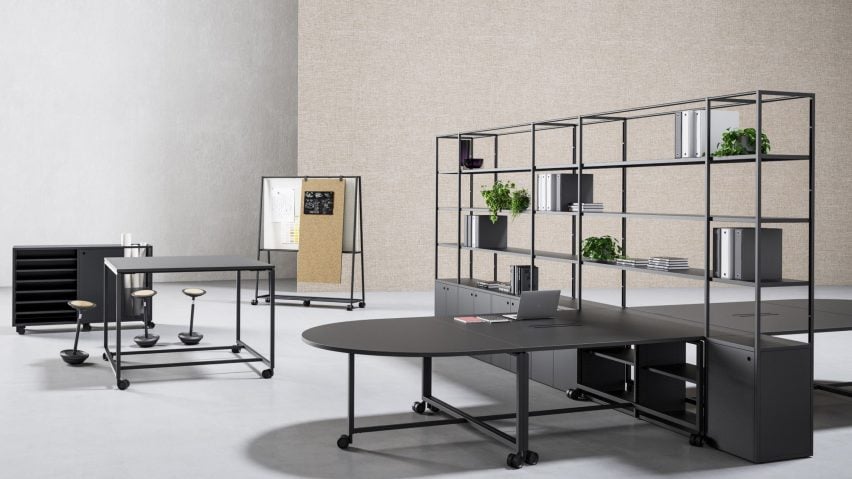
Gensler designs Atelier furniture system to enable "reconfigurability in the workplace"
Using its own London office as a case study, architecture firm Gensler has created a modular furniture range for Fantoni in response to a trend for more flexible and collaborative workplaces.
Gensler developed the Atelier system to meet the demands of offices around the world, which are witnessing a shift away from the traditional format of dedicated desks towards more versatile, open-plan environments.
The modular structure comprises a variety of work surfaces, mobile storage units and shelving that can be easily reconfigured to adapt to changing work requirements and technologies.
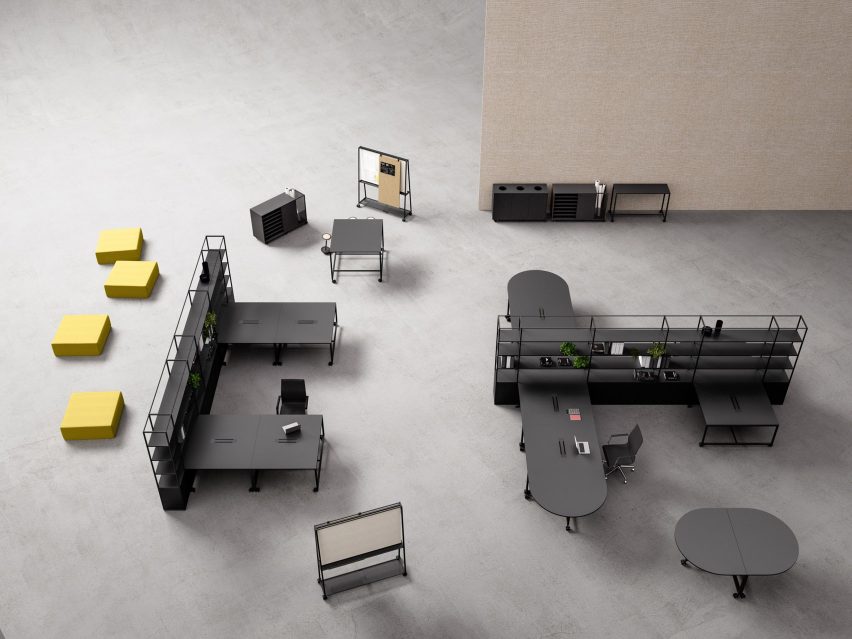
The system's intelligent design earned it a place on the longlist for the Dezeen Awards 2019, where it features in the Workplace design category alongside a collection by Jaime Hayon that aims to merge domestic and commercial design values, and a seating system that doubles as a workstation by Barber and Osgerby.
Gensler began working on Atelier after deciding to relocate its London office. After searching unsuccessfully for a furniture solution that could support improved collaboration between different disciplines and teams in its office, the firm teamed up with Italian office furniture brand Fantoni to develop its own system.
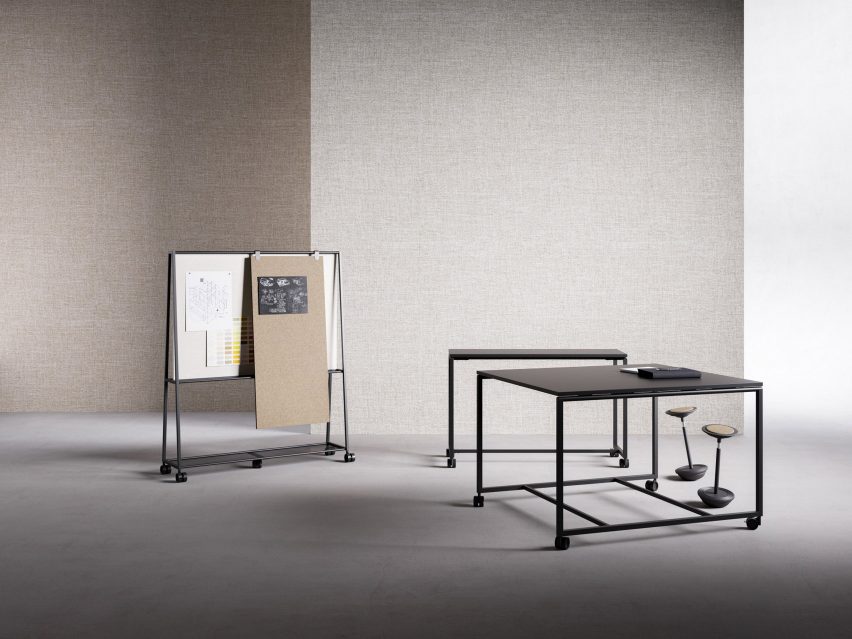
"A highly flexible furniture solution, Atelier was created in response to situations of constant flux within the workplace," said the studio, which is one of the world's largest design firms and has been designing workplaces for over 50 years.
In its 2019 Workplace Survey, Gensler identified a trend for increased levels of collaboration in the workplace. It also pointed out that employees believe collaborative work, socialising and learning are critical to their job performance.
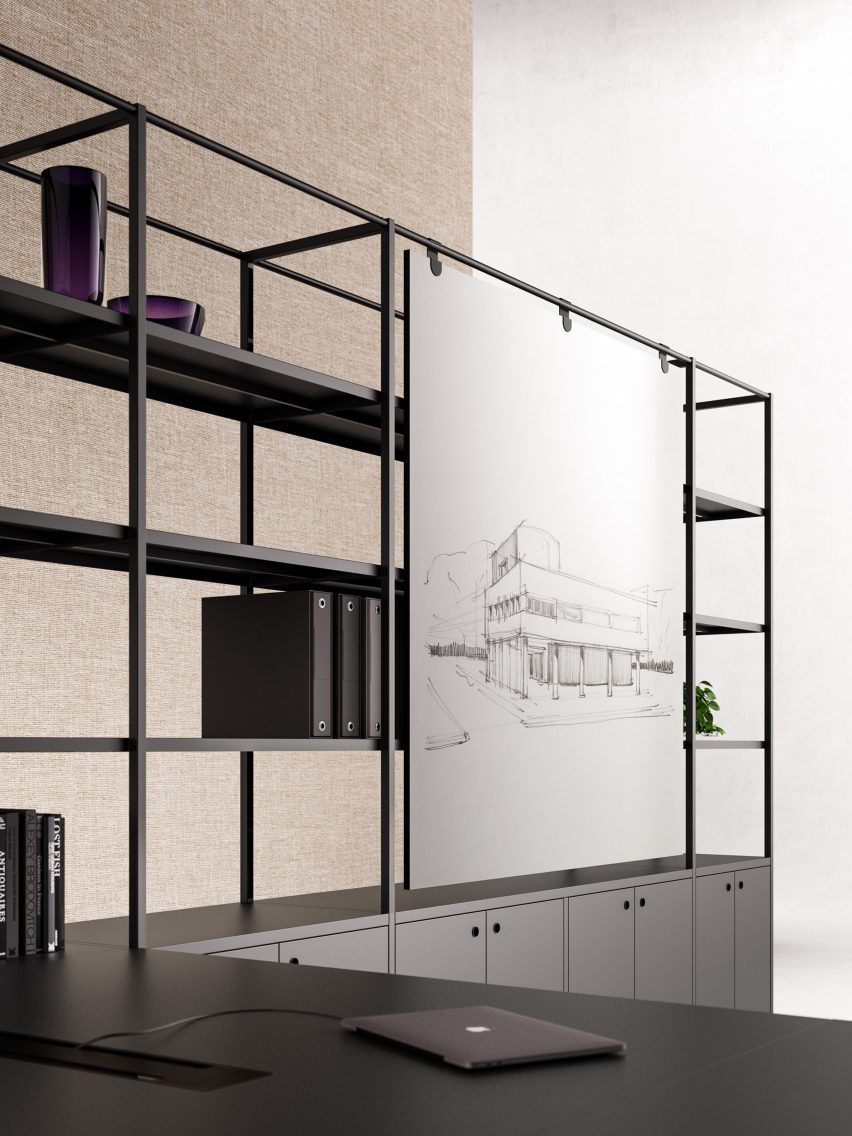
"Atelier speaks of reconfigurability in the workplace, but above all, of shared work, multifunctionality, impromptu meetings, teamwork and efficiency," the firm added.
"It creates immersive experiences and fosters innovative ideas and exchanges, which do not take place on their own, and need to be encouraged and facilitated."
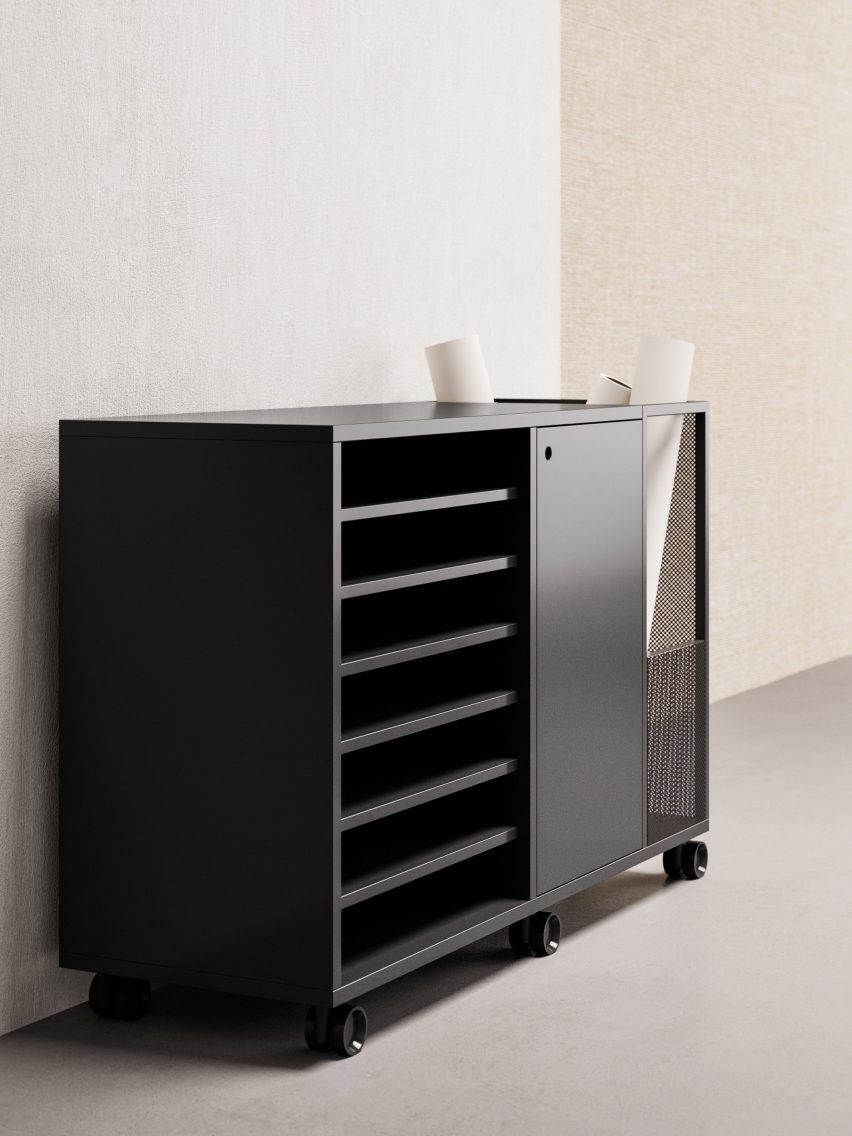
The system aims to promote shared work and different forms of collaboration through its adaptable configuration, which can be used to create spaces ranging from casual breakout areas to focused zones for task-oriented work.
Reconfigurable work surfaces in two fixed heights offer options for both sitting and standing work styles. These can combine with various storage units, bookcases and double-sided pinboards used for group working.
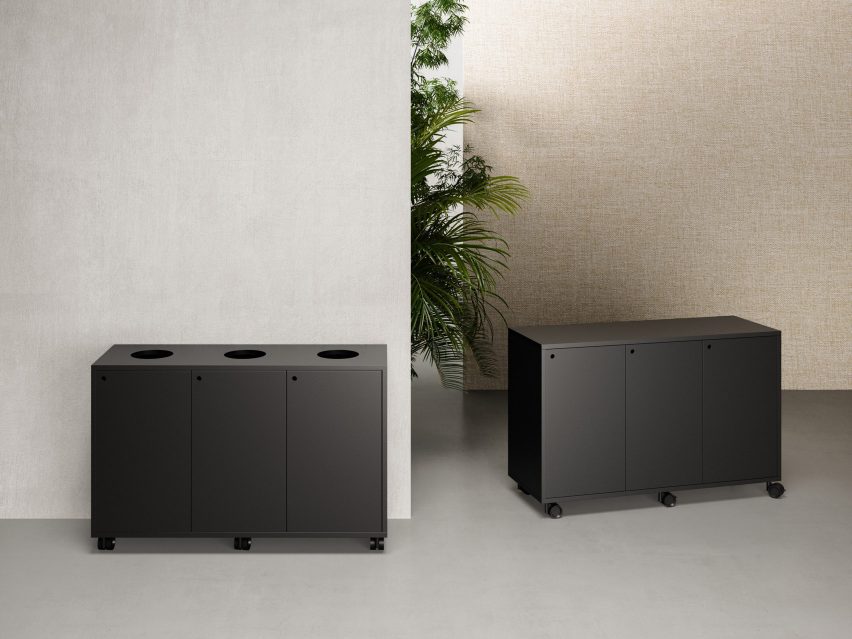
A mobile freestanding drawing and pinboard can be moved around to allow teams to conduct meetings anywhere within the office.
A second removable pinboard featuring a wipe-down whiteboard on one side and a cork-covered surface on the other can hook onto the tubular metal bookcase or attach to the mobile unit.
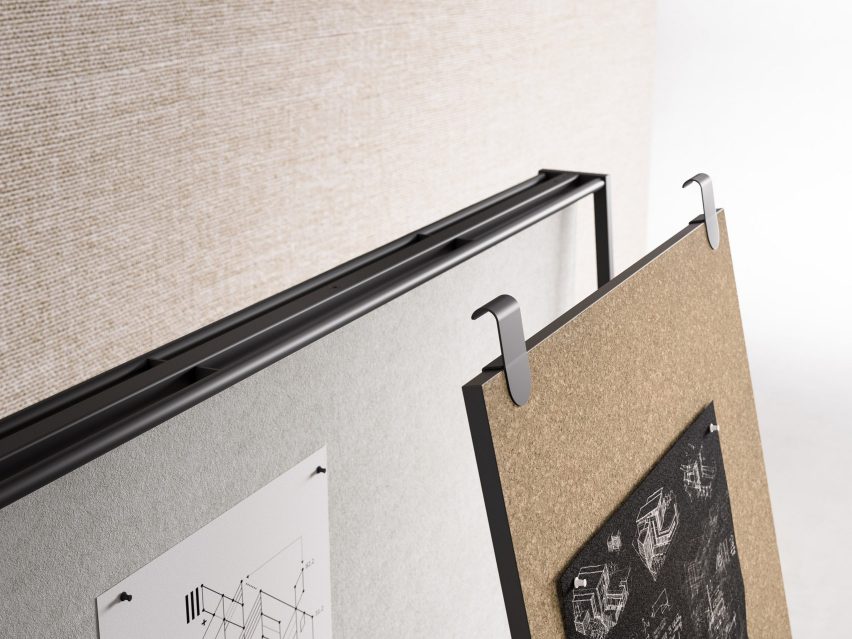
The system's form and materials were chosen to lend it a simple, utilitarian aesthetic.
Linoleum surfaces provide a tactile touchpoint and integrated under-shelf lighting can be specified to add a further functional element.
Gensler is not the only architect designing modular office furniture. Earlier this year British architect David Chipperfield created a modular workstation using traditional joinery techniques for German furniture company e15.